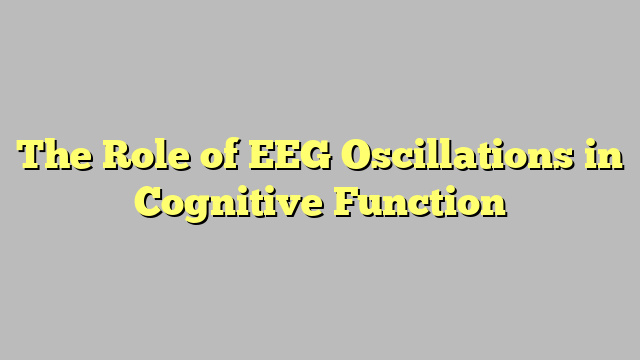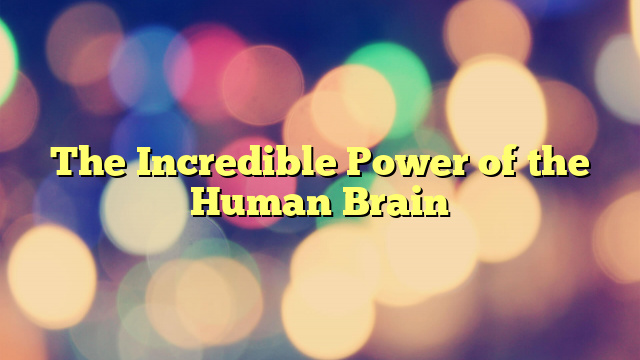Electroencephalography (EEG) is a technique used to measure the electrical activity in the brain. EEG oscillations refer to the rhythmic patterns of electrical activity that can be observed in the EEG signal. These oscillations play a crucial role in cognitive function, including attention, memory, and perception.
Types of EEG Oscillations
There are several types of EEG oscillations that are associated with different cognitive functions:
- Delta waves (0.5-4 Hz) are typically observed during deep sleep and are important for restorative processes in the brain.
- Theta waves (4-8 Hz) are associated with memory encoding, spatial navigation, and cognitive control.
- Alpha waves (8-12 Hz) are seen when the brain is in a relaxed or resting state.
- Beta waves (12-30 Hz) are linked to active thinking, problem-solving, and concentration.
- Gamma waves (30-100 Hz) are involved in information processing, memory formation, and attention.
Role of EEG Oscillations in Cognitive Function
EEG oscillations are believed to reflect the synchronization of neural activity in different brain regions. This synchronization is essential for integrating information and coordinating neural processing. Research has shown that disruptions in EEG oscillations are associated with cognitive impairments, such as attention deficits, memory problems, and cognitive decline.
For example, studies have found that individuals with attention deficit hyperactivity disorder (ADHD) exhibit abnormal theta and beta oscillations in the frontal and parietal regions of the brain. This disruption in neural synchronization may contribute to the attention problems seen in individuals with ADHD.
Conclusion
Overall, EEG oscillations play a critical role in cognitive function by facilitating communication between brain regions and coordinating neural activity. Understanding the patterns of EEG oscillations can provide valuable insights into cognitive processes and may help in the development of interventions for cognitive disorders.
FAQs
What is EEG?
EEG stands for electroencephalography, which is a technique used to measure the electrical activity in the brain.
What are the different types of EEG oscillations?
There are several types of EEG oscillations, including delta, theta, alpha, beta, and gamma waves, each associated with different cognitive functions.
How do disruptions in EEG oscillations affect cognitive function?
Disruptions in EEG oscillations have been linked to cognitive impairments, such as attention deficits, memory problems, and cognitive decline.
What is the significance of studying EEG oscillations in cognitive function?
Studying EEG oscillations can provide valuable insights into cognitive processes and may help in the development of interventions for cognitive disorders.
Unlock Your Mental Potential



